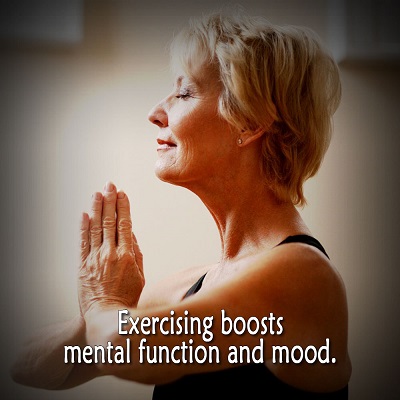 We all know that exercising is good for the body, but it can also boost mental function and mood. There are many reasons why people decide to exercise, and most of the time, it is related to physical health. However, you can also develop a sharper memory, better cognitive abilities, and a more positive disposition.
We all know that exercising is good for the body, but it can also boost mental function and mood. There are many reasons why people decide to exercise, and most of the time, it is related to physical health. However, you can also develop a sharper memory, better cognitive abilities, and a more positive disposition.
New studies reveal that our brain greatly benefits from exercise the same way our heart, lungs, and muscles do. So what’s the connection between doing squats and brain health?
Brain Benefits of Exercising
Several research studies show that exercising has several positive effects linked to the brain and mental health. Here are some of the findings:
Better Focus and Mental Sharpness
If you get easily distracted at work, you might want to give exercising a try. Regularly exercising can make the brain more receptive to new information. That is because the increase in oxygen to the brain from exercising can promote brain plasticity. As a result, new connections in the brain are formed faster.
In a study done in Holland, university students were asked to do quick aerobic exercises in between long lectures. The exercise helped students concentrate better and even allowed them to be better at multi-tasking.
Improves Memory
Performing aerobic exercises, or exercises that increase heart rate, not only improve heart health but has been found to be beneficial for our memory. The increase in oxygen supply to the brain also increases the size of the hippocampus which is the part of the brain that is related to memory and verbal aptitude.
A number of studies also revealed that people who regularly exercise with moderate intensity for six months increased the volume of the different regions in their brains that are associated with thinking and memory, particularly the prefrontal cortex and the medial temporal cortex.
Boosts Mood
Time and again runners and fitness enthusiasts alike love talking about the high they experience during and/or after a workout session, and it’s a real thing. Studies show that a good aerobic session where your heart is constantly working at an increased heart rate can boost endorphins levels or what is often referred to as the “happy” hormones. Aerobic exercise can produce an anti-depressant effect as stress hormones drop the more we exercise. Moreover, exercise can also improve sleep which can make us feel more energized in the morning, both physically and mentally.
Slows Down Cognitive Decline
Regular physical activity can not just slow down physical degeneration, but it can also help slow down a person’s cognitive decline. Exercising can improve the brain’s function and can also protect our brain from memory loss. The workout itself does not even have to be strenuous. Health experts recommend a minimum of 30 minutes of brisk walking at least three times a week to slow down the effects of dementia.
Helps with Creativity
Many artists and writers say that taking a brief walk outdoors helps them whenever they hit a creativity block. Well, there is a scientific reason behind their claim. Aside from the fact that nature and some fresh air are good for you, walking and other moderate exercises can boost creativity, according to studies.
Exercising is not just a physical activity, it can also become a mental activity. With regular exercise, we can improve our focus, cognitive functions, mood, and it can even help us become more creative. All of these are helpful in our work and other daily tasks. Our entire bodies benefit from exercising, literally from our heads down to our toes. So we are not only building a fit and healthy body but a sound and sharp mind too!






